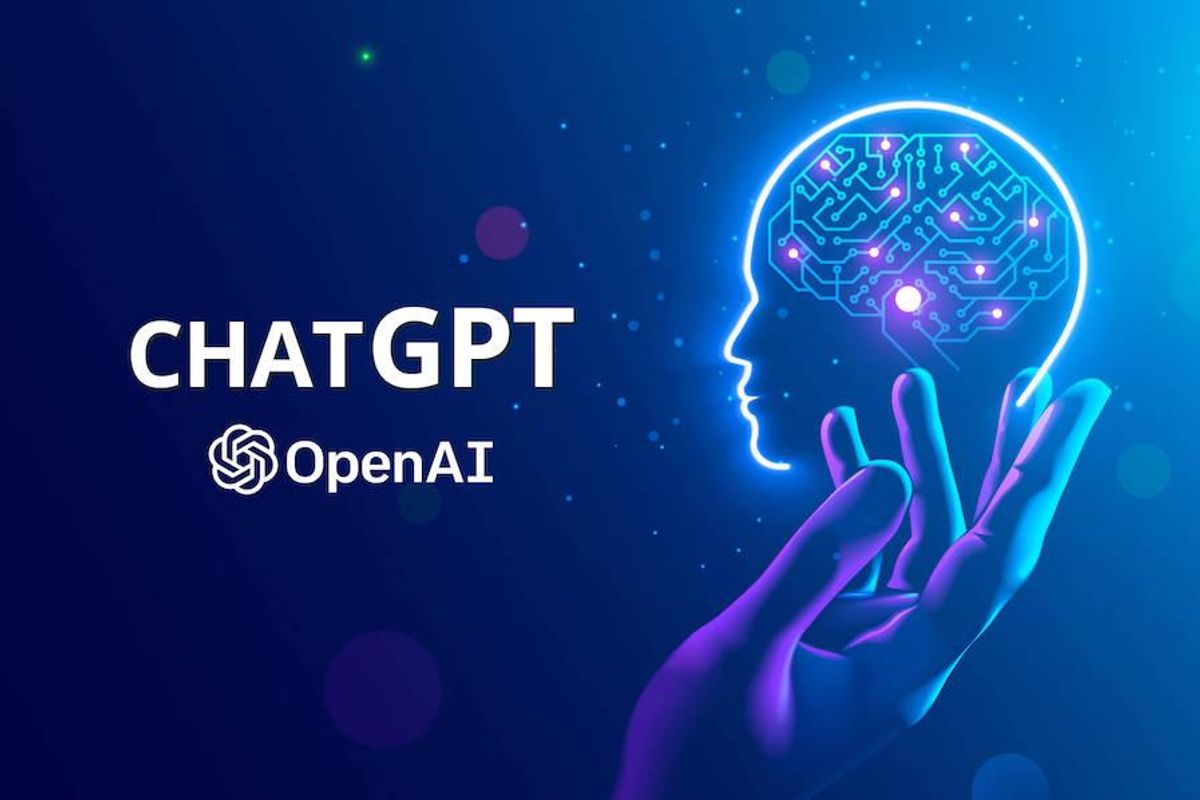What is chatGPT?
ChatGPT is a large-scale natural language processing model developed by OpenAI, one of the leading artificial intelligence research organizations in the world. GPT stands for "Generative Pre-trained Transformer", and the model is trained on vast amounts of text data from the internet, allowing it to generate human-like text based on the context and input it receives.
The model is pre-trained using unsupervised learning techniques, which means it learns to understand natural language based on the patterns and relationships within the data it is trained on. This makes ChatGPT a highly versatile and adaptable tool for natural language processing tasks, as it can be fine-tuned for specific applications such as language translation, content generation, and chatbots.
ChatGPT has several notable features that make it a powerful tool for natural language processing. First, it is capable of generating coherent and contextually appropriate text that closely mimics human writing. Second, it has the ability to perform a wide range of language-related tasks, such as language translation, summarization, and question-answering. Third, it can be fine-tuned for specific applications based on the task at hand, allowing it to produce highly accurate and relevant output.
Overall, ChatGPT represents a major breakthrough in natural language processing and has the potential to revolutionize the way we interact with language in various domains, including content generation, chatbots, and customer service. As the technology continues to evolve and improve, we can expect to see it being applied in a wide range of contexts and use cases.
how will chatGPT change freelancing?
In the past, freelancers have had to rely on their own skills and expertise to create written content, often spending countless hours researching and writing to produce high-quality work. With ChatGPT, however, freelancers can leverage the power of AI to help them create content more efficiently and effectively.
One of the primary benefits of using ChatGPT for freelancers is the time-saving factor. By using the model to generate initial drafts or outlines for written content, freelancers can save significant amounts of time that would otherwise be spent researching and writing. This time can then be allocated towards other tasks, such as editing or promoting their work.
Another benefit of using ChatGPT is the potential for improved quality of work. ChatGPT is trained on massive amounts of data and is constantly learning from new information, meaning it can generate accurate and engaging content. This can help freelancers produce high-quality work that is both informative and engaging to readers.
Furthermore, ChatGPT can help freelancers expand their areas of expertise. Freelancers often have to be knowledgeable in a wide range of topics to cater to the diverse needs of their clients. With ChatGPT, freelancers can use the model to quickly generate content on topics they may not be familiar with, allowing them to take in a broader range of projects and expand their skill set.
Moreover, ChatGPT can also help freelancers overcome language barriers. Many freelancers work with clients from different parts of the world, where English may not be their first language. ChatGPT can help freelancers communicate more effectively with their clients by generating content that is easily understandable, even for non-native English speakers.
Finally, ChatGPT can help freelancers improve their productivity and efficiency. By automating certain tasks, such as generating initial drafts or outlines, freelancers can focus on other important tasks such as client management, networking, or professional development. This can help freelancers achieve more in less time, ultimately resulting in increased income and greater job satisfaction.
In conclusion, ChatGPT has the potential to change the freelancing field by offering an efficient and effective way for freelancers to create high-quality written content. By leveraging the power of AI, freelancers can save time, improve the quality of their work, expand their areas of expertise, overcome language barriers, and increase productivity. As ChatGPT continues to evolve and improve, we can expect it to become an indispensable tool for freelancers worldwide.
how chatGTP will work in this regard?
In the context of freelancing, ChatGPT can be used to assist freelancers in a variety of ways. For example, the model can be used to generate initial drafts or outlines for written content, such as blog posts, articles, or marketing copy. Freelancers can simply input a topic or keyword into the model, and it will generate a draft or outline that can be used as a starting point for further research and writing. Additionally, ChatGPT can be used to automate certain tasks that freelancers typically spend a lot of time on, such as proofreading or editing. The model can be trained on specific writing styles or preferences, allowing it to automatically detect and correct errors or inconsistencies in written content.
Furthermore, ChatGPT can be used to assist freelancers in working with clients who may not speak English as their first language. The model can be used to generate content that is easy to understand and free of jargon or technical terms, making it more accessible to non-native speakers. In terms of implementation, ChatGPT can be integrated into various freelance platforms or tools, such as content management systems or project management software. Freelancers can simply input their writing prompts or content needs into the system, and ChatGPT will generate text that can be used to complete the project. It's worth noting that while ChatGPT is a powerful tool, it should not be seen as a replacement for human creativity or expertise. Freelancers should still exercise their own judgment and skill when working with the model, using its output as a starting point rather than a final product. Overall, ChatGPT has the potential to significantly impact the way freelancers work, offering a new level of efficiency and productivity in the creation of written content. As the model continues to evolve and improve, we can expect to see it become an increasingly important tool in the freelancing field.


